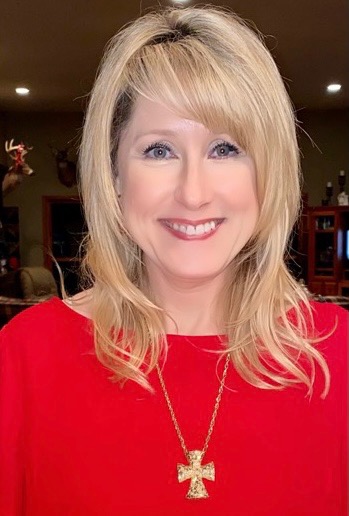
Arkansas’s economy depends on quality early care and education. These programs not only allow parents to return to and stay engaged at work, they also provide stimulating, responsive learning environments for children during critical periods of early development. These experiences help build core literacy, social emotional intelligence, early executive functioning, and self-regulation—essential skills for our future workforce’s health and success.
Yet, as Mindy Shaw, instructor of Early Childhood and Development at the University of Arkansas Community College Batesville and E8 Community Steering Committee member, knows, our state’s child care providers are often unable to receive additional education or training due to expense and time constraints. One solution: the Teacher Education and Compensation Helps (T.E.A.C.H.) Early Childhood Scholarship Program.
Mindy, can you tell us more about T.E.A.C.H.?
T.E.A.C.H. is a national, evidence-based program, which came to Arkansas in 2019 with support from the Arkansas Early Childhood Association. It helps full-time teachers, directors, and family child care providers achieve their higher education and career goals by providing counseling support and paying for a majority of their tuition, books, travel expenses, and paid release time from work. As an Arkansas educator for nearly 25 years, I’ve seen how T.E.A.C.H. allows individuals to take classes at their own pace, so they can implement their new knowledge while continuing to support their families and workplaces.
Data shows increasing teachers’ education and training helps improve quality of care. Why do you believe T.E.A.C.H. benefits Arkansas children?
T.E.A.C.H. participants are often non-traditional students with families who want to advance their careers, increase their pay, and improve their overall quality of life. Very quickly, they see the potential of what the program affords. It increases their self-esteem, which empowers them in the classroom. They are better able to pinpoint children’s social emotional cues as well as their cognitive and physical abilities, so they can make age-appropriate accommodations. In general, participants are “hooked” by the time they complete the initial certificate of proficiency courses. After obtaining their associate, many decide to pursue more advanced degrees, which further benefits the children, families, and communities they serve.
T.E.A.C.H. is designed to help child care centers and programs reduce turnover and maintain its workforce. What is the long-term benefit of this?
Once enrolled in T.E.A.C.H., participants become heavily involved in the program, their classrooms, and the state’s education sector. It fuels their thirst for knowledge and their love for teaching. Many have gone on to hold more senior-level positions at their centers or facilities. Other individuals have transitioned to new career challenges, such as teaching children with special needs.
How can we help expand T.E.A.C.H. across the state?
T.E.A.C.H. depends on strong partnerships and financial buy-in from higher-educational institutions and child care facilities. Unfortunately, in certain areas of our state, these programs are struggling to make ends meet or otherwise unable to participate. The ones that have opted in, however, are seeing continued benefits. In fact, T.E.A.C.H. has led to such strong results that the program is now at capacity. Additional funding is needed if we want to expand it.
T.E.A.C.H. has been called a “change agent for the early care and education (ECE) workforce and system.” How is the program positively impacting ECE in Arkansas?
T.E.A.C.H. has given child care teachers, directors, and providers the opportunity to broaden their horizons and pursue rewarding careers. At the same time, it has transformed many of these individuals into advocates for ECE. They are able to speak firsthand to how these programs help children excel in school, higher education, and the workforce. They are part of the larger effort to ensure a brighter future for our state.
Have additional questions about T.E.A.C.H.? Share them on our Facebook page.
